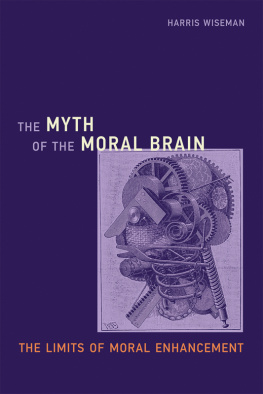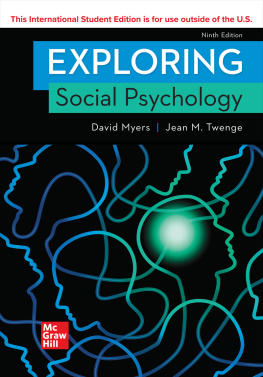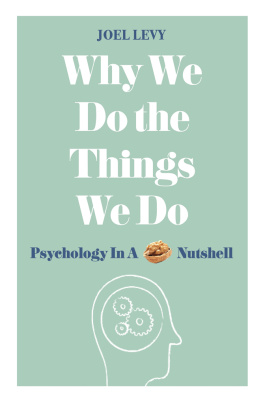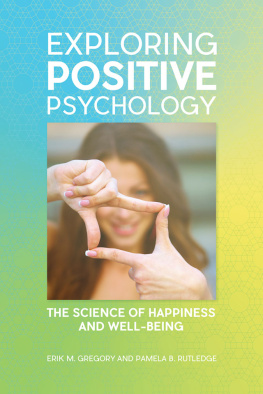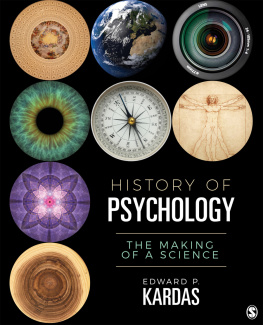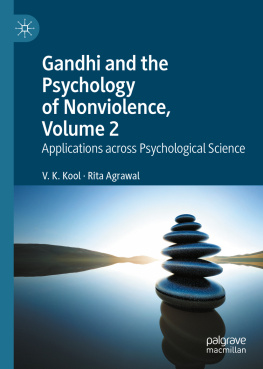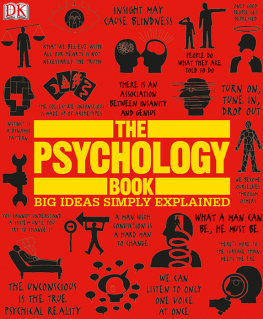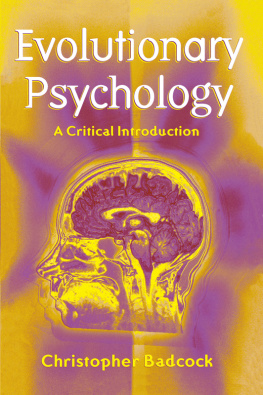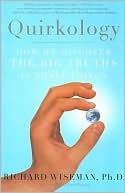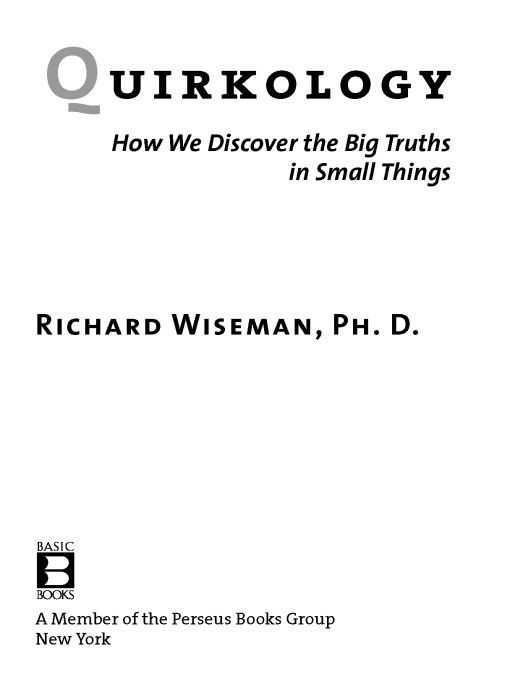Table of Contents
Table of Figures
To MUM AND DAD
What is the use of such a study? The criticism implied in this question has never bothered me, for any activity seems to me of value if it satisfies curiosity, stimulates ideas, and gives a new slant to our understanding of the social world.
STANLEY MILGRAM, THE INDIVIDUAL IN A SOCIAL WORLD
PROLOGUE
The Mysterious Q-Test
Before we begin, please take a few moments to complete the following exercise.
Using the first finger of your dominant hand, please trace the capital letter Q on your forehead.
There are two ways of completing the exercise. You can draw the letter Q with the tail of the Q toward your right eye like this:
In this case, you can read it, but someone facing you cant.
Or you can draw it with the tail of the Q toward your left eye.
In this case, someone facing you can read it, but you cant.
As we will discover later, the way in which you completed the task reveals a great deal about an important aspect of your life.
INTRODUCTION
Exploring the Backwaters of the Human Brain
I have long been fascinated by the quirky side of human behavior. When I was a psychology undergraduate, one of my very first experiments involved standing for hours in Londons Kings Cross railroad station looking for people meeting partners who had just gotten off a train. The moment they were locked in a passionate embrace, I would walk up to them, trigger a hidden stopwatch in my pocket, and ask, Excuse me, do you mind taking part in a psychology experiment? How many seconds have passed since I just said the words excuse me? After querying around fifty such couples, I discovered that people greatly underestimate the passing of time when they are in love, or, as Albert Einstein once said, Sit with a beautiful woman for an hour and it seems like a minute, sit on a hot stove for a minute and it seems like an hourthats relativity.
An interest in the more unusual aspects of psychology has continued throughout my career. After finishing my undergraduate degree, I traveled north to the University of Edinburgh in Scotland and spent four years working on a doctorate examining the psychology of deception. Once that was completed, I accepted an academic position at the University of Hertfordshire, and set up my own research unit to examine unusual areas of psychology. I am not the first academic to be fascinated by this approach to examining behavior. Each generation of scientists has produced a small number of researchers who have investigated the strange and unusual.
The maverick Victorian scientist Sir Francis Galton might be considered the founding father of this approach because he devoted much of his life to the study of offbeat topics. He objectively determined whether his colleagues lectures were boring by surreptitiously measuring the level of fidgeting in their audiences, and he created a Beauty Map of Britain by walking along the main streets of major cities with a punch counter in his pocket, secretly recording whether the people he passed were good, medium, or bad looking (London was rated the best, Aberdeen the worst).
Galtons work on the effectiveness of prayer was more controversial. He hypothesized that if prayer really worked, then members of the clergywho obviously prayed longer and harder than mostshould have a longer life expectancy than others. When his extensive analyses of hundreds of entries in biographical dictionaries revealed that the clergy actually tended to die before lawyers and doctors, the deeply religious Galton was forced to question the power of prayer.
Even the making of tea caught Galtons attention; he spent months scientifically determining the best way to brew the perfect cup of tea. He constructed a special thermometer that allowed him constantly to monitor the temperature of the water inside his teapot, and after much rigorous testing, Galton concluded that the tea was full bodied, full tasted, and in no way bitter or flat... when the water in the teapot had remained between 180 degrees and 190 degrees Fahrenheit, and had stood eight minutes on the leaves.
Satisfied with the thoroughness of his investigation, Galton proudly declared, There is no other mystery in the teapot.
On the surface, Galtons investigations into boredom, beauty, prayer, and tea-making may appear to have nothing in common. But in fact they are all excellent and early examples of an approach to investigating human behavior that I have called quirkology. Put simply, quirkology uses scientific methods to study the more curious aspects of everyday life. This approach to psychology has been pioneered by a few researchers over the past hundred years who have followed in Galtons footsteps and had the courage to explore the places mainstream scientists avoid. These brave academics have
examined how many people it takes to start a Mexican wave in a football stadium;
charted the upper limits of visual memory by having people try to remember 10,000 photographs accurately;
identified the perceived personality characteristics of fruits and vegetables (lemons are seen as dislikable, onions as stupid, and mushrooms as social climbers);
secretly counted the number of people wearing their baseball caps the right way or back to front;
stood outside supermarkets with donation boxes quietly measuring how different types of requests for donations determined the amount of money given (simply saying Even a penny helps almost doubled donations);
discovered that childrens drawings of Santa Claus grow larger in the build-up to Christmas Day, and then shrink during January.
For the past twenty years, I have carried out similarly strange investigations. I have examined the telltale signs that give away a liar, explored how our personalities are shaped by month of birth, uncovered the secret science behind speed dating and personal ads, and investigated what a sense of humor reveals about the innermost workings of the mind. The work has involved secretly observing people as they go about their daily business, conducting unusual experiments at art exhibitions and concerts, and even staging fake sances in allegedly haunted buildings. The studies have involved thousands of people all over the world.
This book details my adventures and experiments and also pays homage to unusual research carried out by the small band of dedicated academics that has kept the quirky flag flying for the past century. Each chapter reveals the secret psychology underlying a particular aspect of our lives, from deception to decision making, selfishness to superstition. Along the way, you will encounter some of my favorite pieces of strange but fascinating research: experiments that have, for instance, measured the amount of subsequent horn-honking when cars become stalled at traffic lights; examined why a disproportionate number of marine biologists are called Dr. Fish; secretly analyzed the type of people who take more than ten items through express lines in supermarkets; asked people to behead live rats with a kitchen knife; discovered whether suicide rates are related to the amount of country music played on national radio; and proved beyond all reasonable doubt that Friday the thirteenth is bad for your health.



